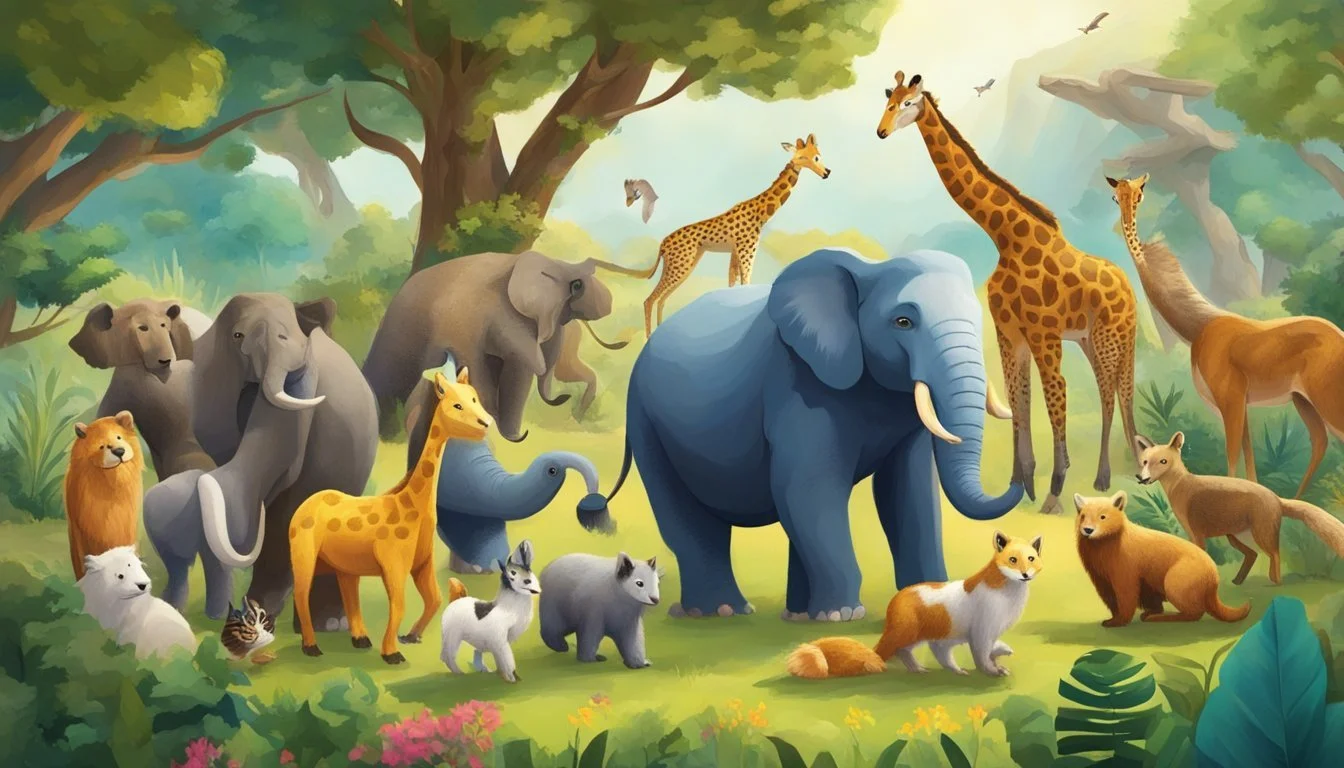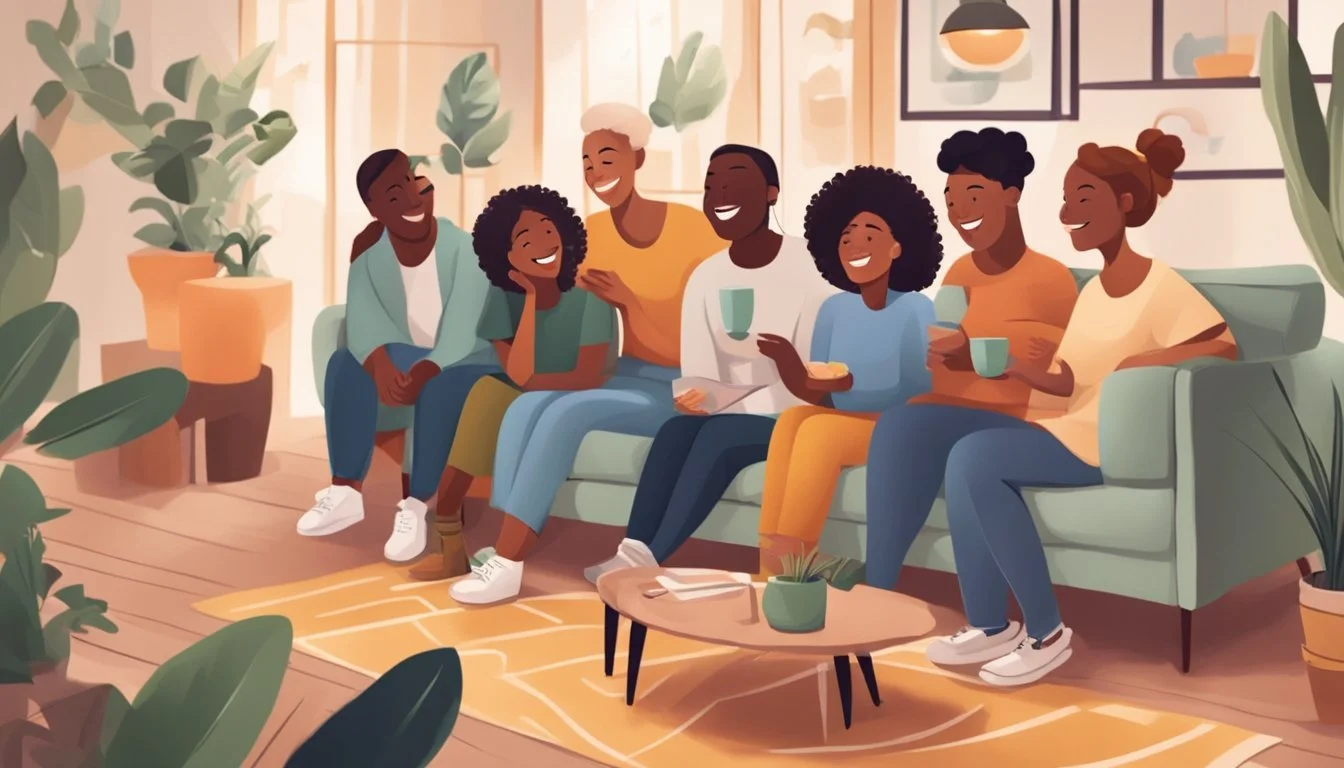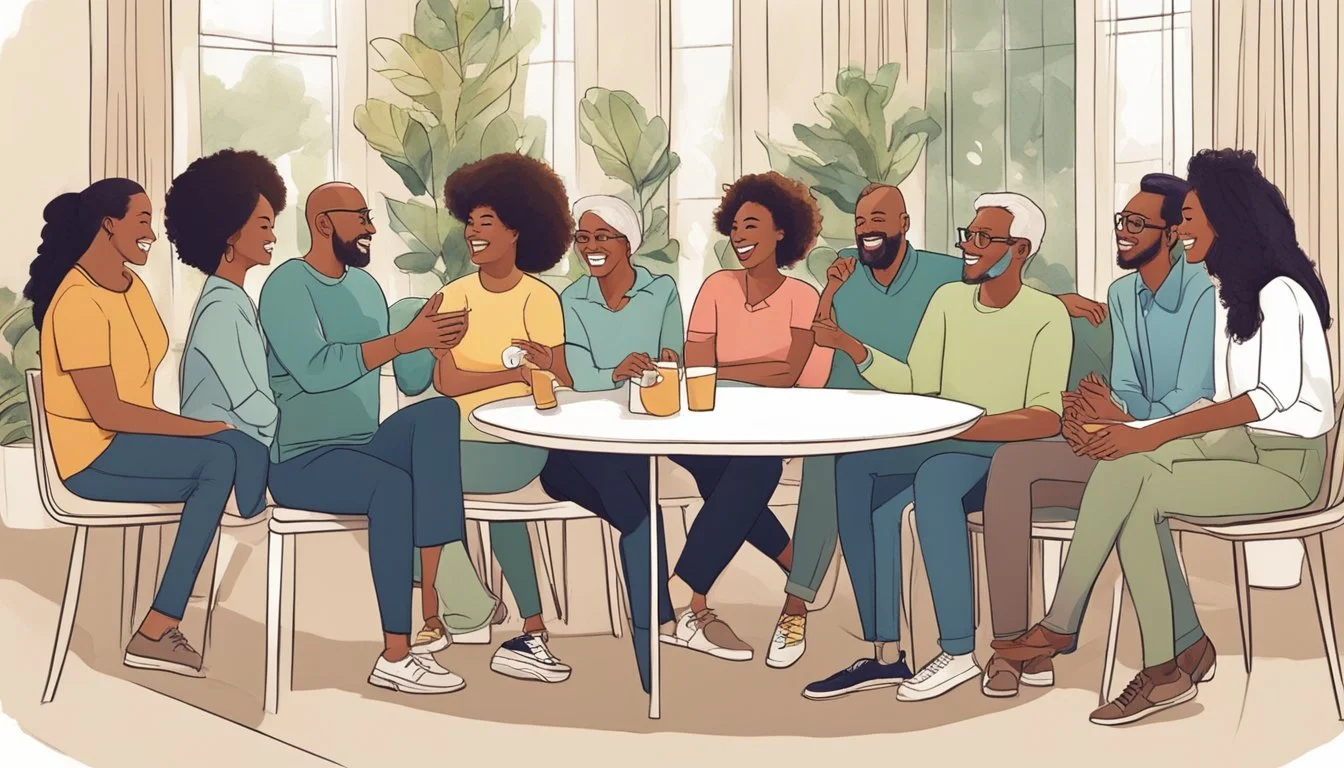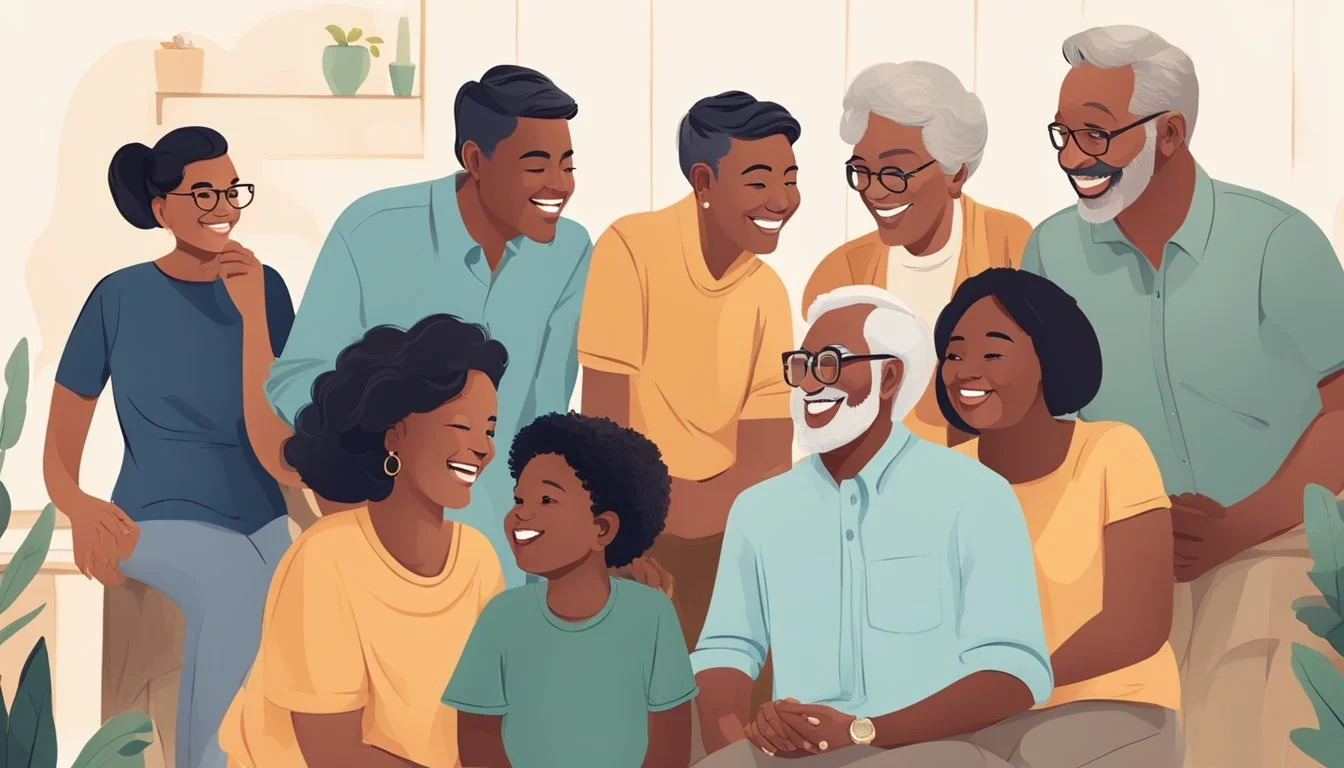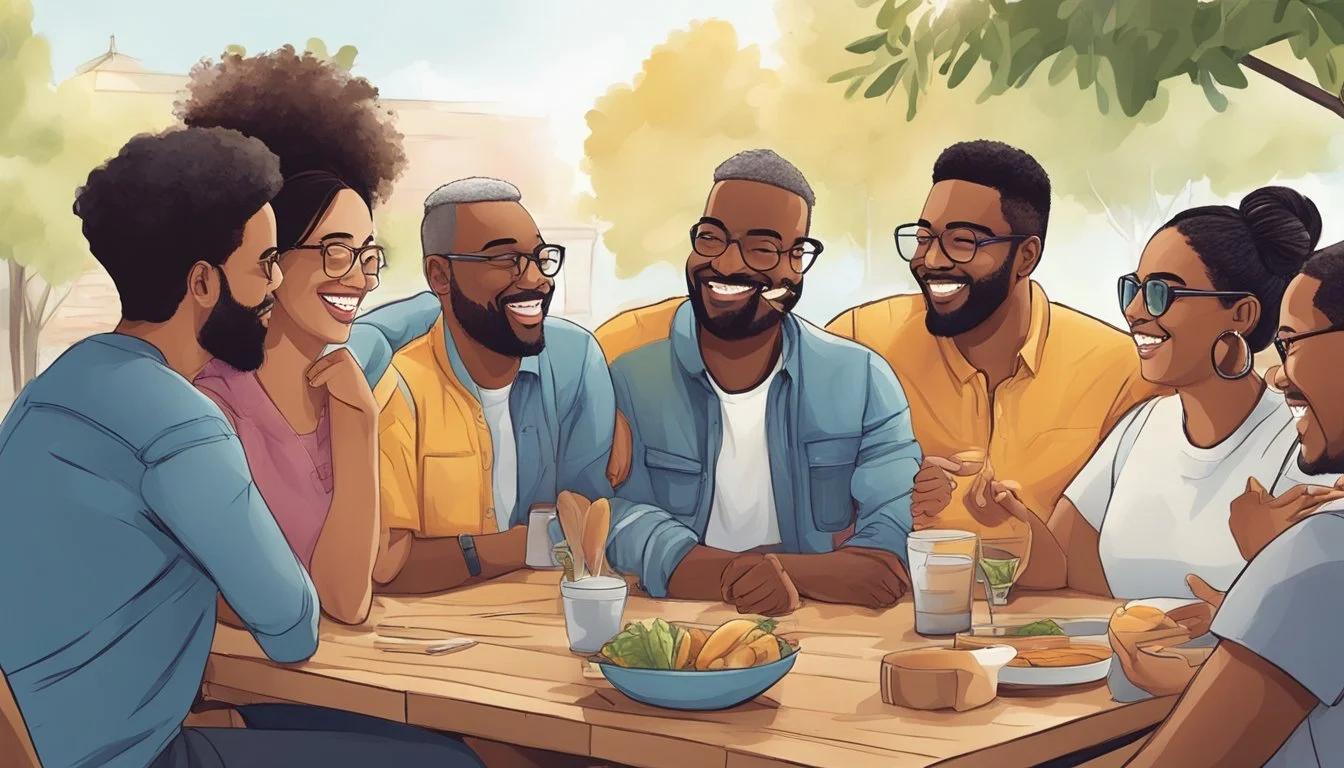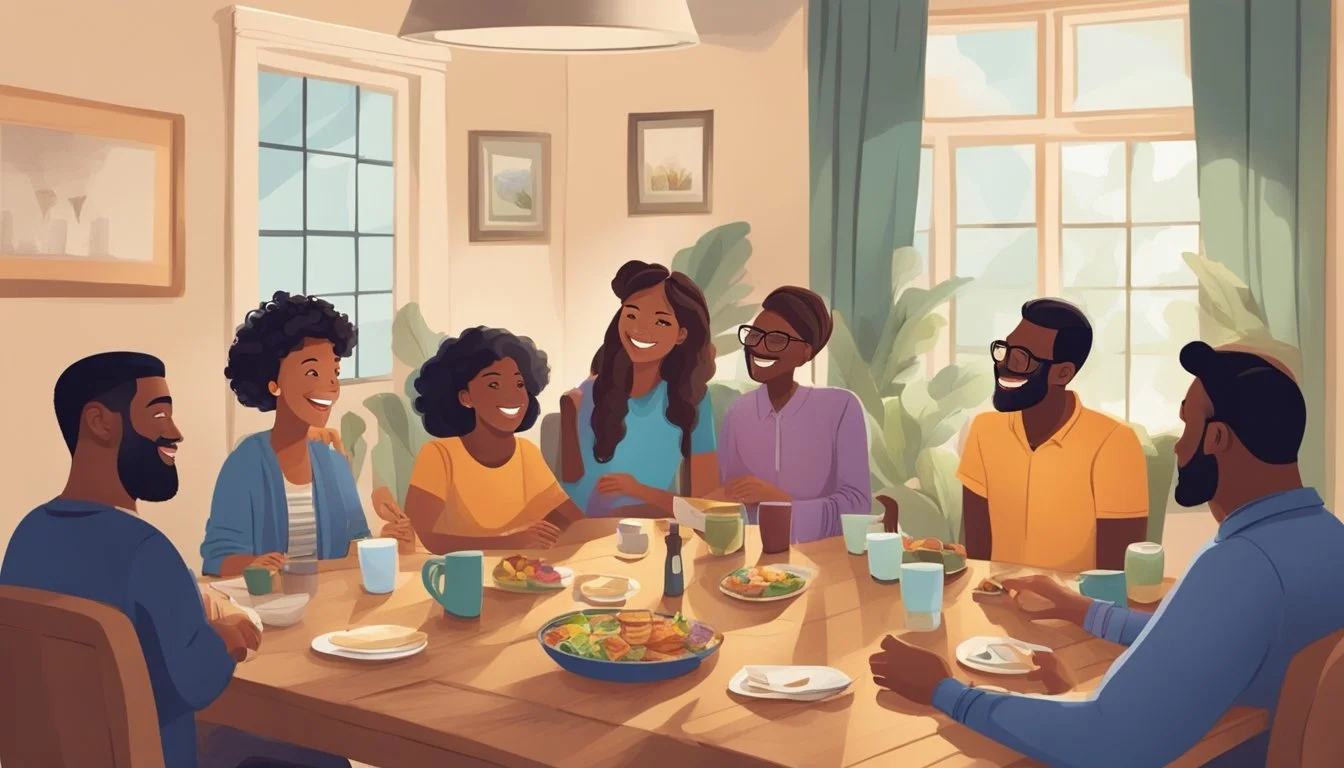7 Reasons Why Having Friends of Different Ages Enriches Your Life
Navigating relationships with friends of different ages can open up a world of diverse perspectives and insights. These friendships offer unique opportunities to experience life through the eyes of those in different stages of their journey. By connecting with those both younger and older, individuals can gain wisdom and fresh viewpoints that they might not encounter otherwise.
Having friends from various age groups enhances emotional intelligence and broadens one's social network. This kind of social diversification can foster empathy, support personal growth, and challenge preconceived notions, creating a more well-rounded and enriched life experience.
1) Exposure to Different Perspectives
Having friends from different age groups introduces a wealth of diverse perspectives. This can open up new ways of thinking and problem-solving. Younger friends often bring fresh, innovative ideas. Their approach to challenges can be bold and unencumbered by past failures.
Conversely, older friends contribute their lived experience. They offer insights and wisdom gained through years of facing similar situations. This can be particularly valuable when navigating complex or unfamiliar issues.
Interactions across age groups help break down generational stereotypes. This fosters empathy and understanding. It also creates a more inclusive environment where everyone's viewpoints are valued.
These friendships can provide longer-term perspectives. They help individuals see their current struggles in the context of a greater timeline. This can be incredibly comforting and motivating during tough times.
Such relationships widen one’s world significantly. Engaging with varied life experiences enriches conversations. It also broadens horizons, leading to personal growth and resilience. By exchanging stories and advice, individuals learn to consider different angles before making decisions.
2) Enhanced Emotional Support
Friends of different ages provide varied perspectives on life's challenges. Older friends bring wisdom from their life experiences, offering seasoned advice that can be comforting and practical. Younger friends, on the other hand, often inject energy and optimism, helping to lift spirits during challenging moments.
Intergenerational friendships foster a sense of belonging and reduce feelings of isolation. Older adults with younger friends experience improved mood and fewer conversations centered around stress, as seen in friendships in old age.
Different age groups offer diverse emotional support. Young people might find comfort in an older friend’s stability and calm. Meanwhile, older adults could benefit from the enthusiasm and novel viewpoints that younger friends offer. This blend helps create a balanced emotional support system.
Age-gap friendships enable individuals to "try on" different life experiences vicariously. For example, younger friends can learn about upcoming life stages, while older friends reflect on their past with a more contemporary lens. This reciprocal exchange is enriching and supportive.
Engaging with friends of varied ages can also open individuals to broader emotional experiences. Each generation has its ways of dealing with emotions and supporting others. These differing approaches can provide new coping mechanisms and emotional resilience.
Therefore, the enhanced emotional support from intergenerational friends is invaluable, offering stability, comfort, and a well-rounded support network.
3) Improved Communication Skills
Having friends from different age groups can enhance communication skills significantly. Interacting with people of various ages requires adapting language and communication styles. This adaptability helps individuals become more versatile communicators.
Older friends often prefer clear and direct communication, valuing substance over style. Younger friends, on the other hand, might use more modern slang and informal language. Learning to switch between these styles can make communication more effective.
Moreover, intergenerational friendships encourage active listening. When speaking with someone from a different age group, understanding their perspective requires focusing on their words and experiences. This practice can improve empathy and interpersonal skills.
In addition, discussing different life stages and experiences with friends of various ages expands vocabulary and knowledge. It enables people to become more articulate and engaging conversationalists.
Engaging with friends of different ages also helps bridge generational gaps, promoting mutual respect and understanding. Frequent communication with diverse age groups fosters patience and sharpens the ability to convey ideas clearly to anyone.
For more information on why having friends in different age groups can be beneficial, check out this article on FabFitFun.
4) Expanding Social Circles
Having friends of different ages broadens one's social network beyond immediate peers. This increases exposure to a variety of perspectives and experiences. Older friends might provide wisdom and guidance, while younger friends can offer fresh insights and energy.
Intergenerational friendships can help combat social isolation. People are less likely to feel lonely when their social circles include a diverse age range. This interaction broadens horizons and fosters a deeper understanding of different life stages.
Expanding social circles across age groups also promotes mutual learning. Individuals can share knowledge and skills from their unique generational contexts. This mutual benefit enriches everyone's lives, making social interactions more rewarding.
These friendships help break down age-related stereotypes. Regular interaction with people of different ages can alter preconceived notions and foster a more inclusive mindset. This leads to a more cohesive and understanding community.
Engaging with friends from different age groups can also lead to new opportunities. Whether it's through career advice, networking, or personal growth, having a diverse friend base can open doors. This can lead to more fulfilling personal and professional lives.
5) Learning New Things
Friendships across different age groups offer valuable opportunities for learning. Younger friends introduce new trends, music, and technology. This keeps older individuals updated and connected to current cultural shifts.
Older friends, on the other hand, provide wisdom gained from life experiences. They share insights about historical events, career advice, and practical life skills.
Each generation has unique perspectives influenced by their formative years. Interacting with these diverse viewpoints can expand one’s understanding of the world, fostering a more well-rounded outlook.
These interactions also encourage continuous learning and mental flexibility. Engaging in conversations with friends of varied ages can spark curiosity and inspire lifelong learning habits.
Mentorship often emerges in these friendships. Younger individuals can find guidance and support, while older friends benefit from the fresh ideas and energy younger friends bring. This mutual exchange strengthens the bond.
Through these age-diverse relationships, one can tap into a wealth of knowledge and skills, enriching their own personal and professional life.
6) Bonding Over Shared Experiences
Engaging in shared activities with friends of different ages offers numerous benefits. These experiences contribute to a sense of camaraderie and mutual understanding. For instance, participating in a group hike or a cooking class can bridge generational gaps through collective memories and fun moments.
When friends of different ages share experiences, they often find common ground despite their age differences. Shared interests, such as a love for music, books, or sports, can foster a deeper connection. This dynamic demonstrates that age truly is just a number when it comes to friendship.
Intergenerational friendships benefit from the exchange of wisdom and energy. Older friends may provide insights from their life experiences, while younger friends can introduce fresh perspectives and ideas. This mutual exchange helps combat feelings of loneliness and nurtures emotional well-being.
Activities like storytelling or discussing historical events with younger friends can be rewarding for older individuals. At the same time, younger people can benefit from learning about past experiences directly from those who lived through them. This reciprocal interaction enriches both parties.
In addition to individual benefits, shared experiences help counteract societal ageism. By forming friendships across age groups, individuals can foster a more inclusive society. Experiencing life together, regardless of age, cultivates empathy, resilience, and a richer understanding of different life stages.
7) Increased Empathy
Having friends of different ages cultivates empathy. Exposure to diverse experiences and perspectives broadens one's understanding of various life stages. This helps individuals recognize and appreciate the challenges and joys faced by people at different ages.
Research indicates that intergenerational friendships foster empathy by allowing individuals to step outside their typical social circles. Engaging with someone younger or older creates opportunities to understand their unique viewpoints and circumstances.
Cultivating empathy through these friendships can counteract stereotypes. When people interact with those from different age groups, they are more likely to see them as individuals rather than as representatives of their age group. This reduces ageism and promotes a more inclusive society.
To learn more about how these interactions can break down stereotypes and decrease ageism, read more here.
Additionally, having friends across ages means adapting to different communication styles and problem-solving approaches. This adaptability translates into greater empathy in other areas of life.
Through intergenerational friendships, individuals often find themselves advocating for the perspectives and needs of their friends across different age groups. This advocacy promotes a community-oriented mindset, emphasizing the importance of empathy in social relationships.
Understanding the Value of Diverse Friendships
Diverse friendships bring richer experiences and greater understanding by blending different perspectives and expanding social connections. These ties can profoundly shape how individuals view the world and interact with others.
Benefits of Different Perspectives
Friends from varied backgrounds can introduce novel viewpoints, fostering enhanced problem-solving and creativity.
They often provide insights that challenge existing beliefs, leading to personal growth. For instance, culturally diverse friends might share unique customs or traditions, enriching others' lives.
Additionally, intergenerational friendships can present valuable life experiences, promoting empathy and understanding. Kids benefit academically and socially from cross-ethnic friendships, as seen in various studies. Exposure to different perspectives helps individuals develop a well-rounded world view and nurtures open-mindedness, crucial for personal development.
Broadening Social Circles
When friendships span diverse backgrounds, social networks expand.
These broader circles offer more opportunities, from career advancements to social events. Diverse friends also increase awareness of different resources and support systems available within other communities. This, in turn, broadens access to new experiences and knowledge.
At work, diverse friendships encourage inclusivity and collaboration, fostering a more accepting and cooperative environment. They help individuals build a robust, interconnected support system that offers both personal and professional benefits.
In sum, having friends from various age groups and cultural backgrounds makes life more enriching and enlightening. It fosters deeper connections and equips individuals with a more inclusive and compassionate approach to life.
Emotional and Social Enrichment
Intergenerational friendships provide unique opportunities for emotional growth and social skill enhancement. These relationships foster higher emotional intelligence and improve communication abilities through diverse interactions.
Emotional Intelligence Development
Having friends of different ages can significantly develop emotional intelligence. Older friends often share wisdom and patience, helping younger individuals understand and navigate complex emotions. This guidance can be invaluable in stressful situations, offering a calming presence and practical advice.
Conversely, younger friends bring energy and new perspectives, challenging older individuals to remain open-minded and adaptable. This reciprocal relationship broadens emotional understanding, making it easier to empathize with people from various backgrounds.
Interacting with friends of different generations also teaches emotional regulation. Observing how others manage their emotions provides effective strategies for maintaining composure and reducing stress.
Enhanced Social Skills
Friends from various age groups enhance social skills through diverse communication styles and cultural references. Older friends often possess refined conversational skills and may mentor younger individuals on effective communication techniques.
On the other hand, younger friends introduce contemporary language and technological fluency, keeping older individuals current with social trends and digital communication methods. These cross-generational exchanges foster adaptable and flexible communication skills.
Additionally, navigating different life stages with friends from various age groups improves conflict resolution skills. Learning to respect and integrate differing viewpoints allows for more effective problem-solving, which can be particularly beneficial in professional and personal relationships.

